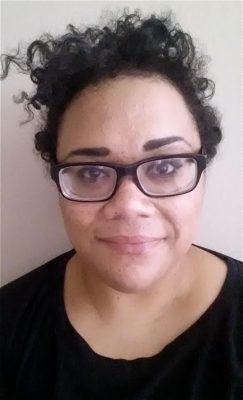LaTanya McQueen
We Were Never Really Free
Once, my father told me how he’d tried to plan his high school reunion. When he contacted all the white students, they refused to come, some even hanging up the phone when they heard his name, each and every one still harbored resentment over the integration of their high school, still after all these years angry for the sake of it. I was young then, not fully understanding the depths of another person’s hate. I looked at him uncomprehending, and I asked “Why? Why do they care after these years?” Without hesitation, without even a blink of a pause, he looked at me and said, “Okay, but you forgot—”
| Remember we were once slaves, remember they gave us Bibles to make us believe our lot, “obey your earthly masters with respect and fear,” they made us remember, “and with sincerity of heart, just as you would obey Christ,” remember that was the quote they used when they whipped us, remember they jeered and smiled in photos as they stood in front of the burned remnants of our bodies, remember they took pieces of us to keep, remember any reason was enough to rope us by our necks, remember sundown towns, remember Bloody Sunday, remember “segregation today, segregation tomorrow, segregation forever,” remember the acid poured in pools when they saw us swimming or the rocks thrown to make us drown, remember redlining, remember fighting against separate-but-equal only to be met with fire hoses and the police dogs sent for us, remember Katrina, remember how they spit on us sitting at lunch counters, remember the murders of our heroes—of Malcolm, of Martin, of Medgar—and so many other lives stolen, remember the Birmingham bombing, remember the Charleston shooting, remember the neighborhoods they kicked us out of, pushing us out further still, always pushing us further toward the edge of oblivion. | Yet, deep down I knew, had always known, like I understood how happy my mother was when they built the new middle school that because of redistricting I would be able to attend, and my mother was happy because it was the white school, white meaning, somehow, to her that I would have a chance in this life, never mind I was one of the only black students in my classes, never mind how that’s how it would be in high school, in college, and also in graduate school, and never mind during all that time I would feel as if I was on the periphery of my life, observing but never taking part, feeling both pride and a deep sense of shame for existing, how it always felt like a betrayal I couldn’t quite identify, not then, it would take me years to finally understand, years after reading white stories in white classrooms, of being taught by white teachers who favored white students, of living an entire life where I was made to feel invisible because of course I was invisible, I should have understood I never belonged in the first place even though my mother tried so hard to make sure I was put in the spaces that had long been denied to us, to her, but what my mother never realized and what it took me forever to understand was this simple truth my father now was trying to tell me. |
“So do you understand? We’ll never be the same as them, no matter what we do in this life, no matter how much we try.” Do you get it now?, he wanted to know. Did you finally get what I’ve been trying to make you see for all these long years?
We were never really equal.
We
have
never
been
free.
LaTanya McQueen received her MFA from Emerson College, her PhD from the University of Missouri, and is the current Robert P. Dana Emerging Writer Fellow at Cornell College. Her essay collection And It Begins Like This is forthcoming from Black Lawrence Press in October 2018.

